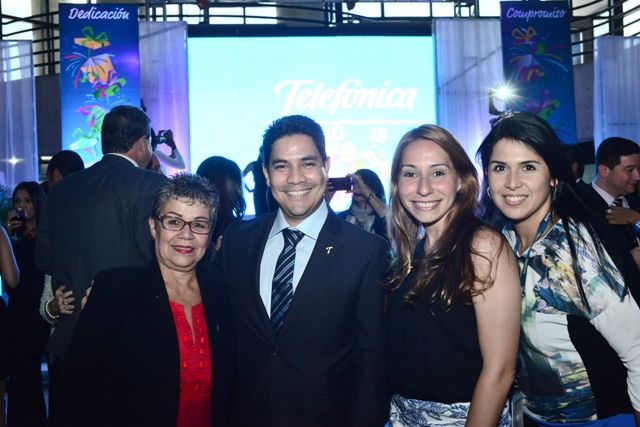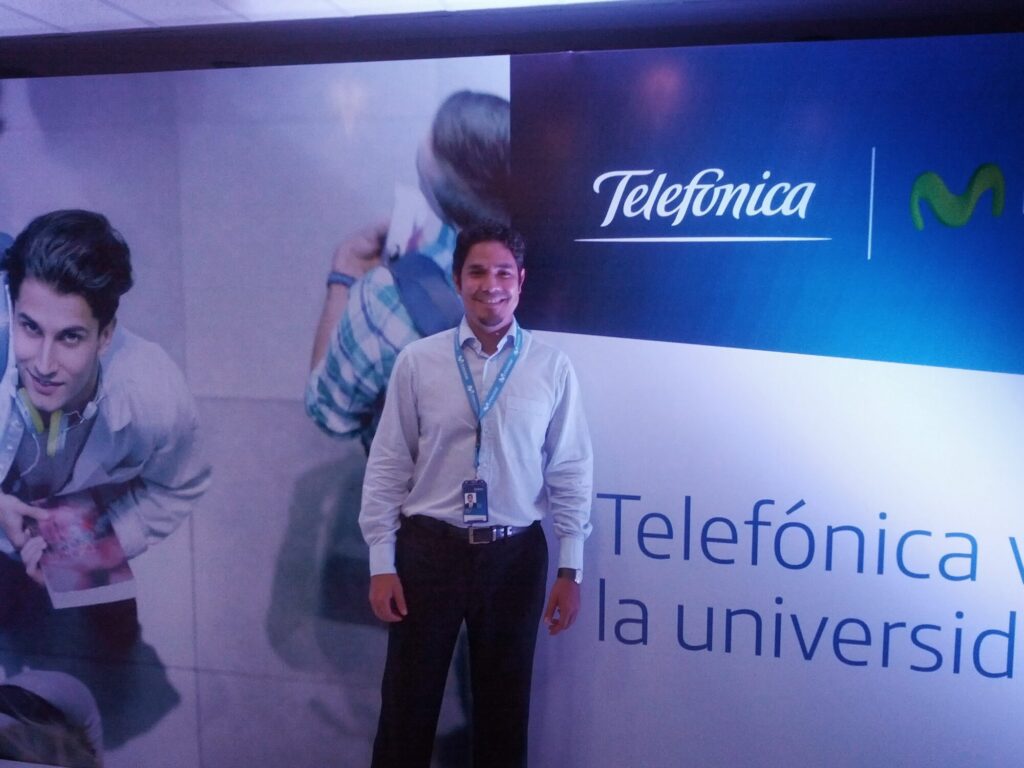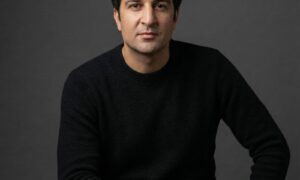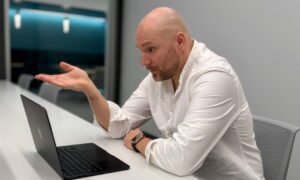As the technological landscape undergoes unprecedented shifts, veteran Electronic and Telecommunications Engineer Jesus Daniel Rodriguez is not just observing the changes; he’s actively shaping the discourse around them.
With over two decades of experience spanning complex network design, device acceptance, and regulatory collaboration across Latin America and the United States, Rodriguez offers a compelling vision for the future of engineering, marked by a profound pivot towards systemic thinking, embedded intelligence, and, crucially, inclusive design.
A highly accomplished professional known for his leadership in deploying advanced telecommunications networks from GSM to 5G, Rodriguez’s career highlights include pivotal roles working with regulatory bodies like SUBTEL Chile and his contributions to enhancing connectivity for millions. Beyond his technical prowess—evidenced by extensive certifications including Cisco’s CCNA and Six Sigma Green Belt—Rodriguez is an active IEEE member, an educator fostering talent in nascent mobile tech markets, and a Master’s in Leadership candidate in Baptist University of Florida.
As founder and General Manager of LB Technology SPA, Rodríguez established one of the few companies in Chile authorized by SUBTEL as a telecommunications certifier. Under his leadership, LB Technology became distinguished for spearheading regional homologation projects across Latin America, working with leading operators such as ENTEL, Millicom-TIGO, and Kodak/Tekmovil. The company is recognized for introducing rigorous testing protocols and pioneering ‘usability’ evaluations that set new quality benchmarks for IoT and mobile devices in the region.
This unique blend of expertise culminates in his founding of Blue Kind Steps, an initiative dedicated to translating lived experience into practical technology solutions for lifetime inclusion, particularly supporting autistic individuals at every stage of life.
Rodriguez asserts that the engineering industry is undergoing a fundamental transformation, moving away from isolated component-building towards the orchestration of complex systems, with a strong emphasis on “inclusion by design.” He outlines five critical shifts defining this evolution:
- Systems-of-Systems Over Silos: “5G-Advanced, edge computing, IoT, and cloud now ship as one fabric,” Rodriguez notes. He emphasizes that winning teams must prioritize reliability, safety, privacy, and user experience (UX) as integral system components, not afterthoughts.
- Edge & On-Device First: The imperative for lower latency, enhanced privacy, and greater resilience is pushing intelligence closer to the user. “This matters in emergencies and in low-connectivity regions—places I’ve worked across Latin America,” he explains, highlighting the real-world impact.
- Open, Interoperable Stacks: Standardization and robust APIs, including critical cell-broadcast alerting, are enabling seamless integration for schools, employers, and public-safety partners, fostering rapid plug-and-play capabilities.
- Inclusive Engineering: This is a cornerstone of Rodriguez’s philosophy. “‘Average-user’ design is out,” he declares. “Teams are building for real people—neurodivergent users, seniors, low-connectivity communities—and discovering that when it works for the margins, it works better for everyone.”
- Outcome Culture: The focus is shifting from merely “shipping features” to proving tangible outcomes: fewer dropped calls, clearer alerts, smoother school-to-work transitions, and fair accommodations in the workplace.
LB Technology’s work under Rodríguez’s direction exemplifies this results-oriented culture. Its certification projects not only improved national emergency alert readiness in Chile but also accelerated IoT deployments across Central and South America. These measurable outcomes cemented LB Technology’s reputation as a trusted, distinguished player in the telecommunications ecosystem—one in which Rodríguez’s leadership was critical.
“From drive tests and device/VoLTE acceptance to collaboration with regulators and university programs, I’ve learned to translate constraints into human results,” Rodriguez shares. “Blue Kind Steps is where I’m applying that playbook today—turning inclusion into a product you can feel in daily life.”
The rapid development of Artificial Intelligence (AI) is also entering a new phase, moving beyond the “bigger is better” mantra towards purpose-built, trustworthy, and user-proximate models. Rodriguez identifies key changes:
- Right-Sized Models at the Edge: Smaller, efficient AI models are increasingly running directly on devices, prioritizing privacy, speed, and offline functionality.
- Safety and Evaluation as Product Features: Rigorous testing is paramount, focusing on false positives/negatives, fairness, and robustness, rather than just benchmarks.
- Data Stewardship over Hoarding: Emphasizing consent, data minimization, and on-device processing, particularly in sensitive areas like health, education, and employment.
- Digital Twins & Synthetic Data: The ability to simulate rare but critical events, such as emergency alerts under network congestion, before they impact real users.
- Human-in-the-Loop by Design: AI serves as a drafting and detection tool, but humans retain decision-making authority and accountability, especially crucial in safety-critical or workplace inclusion scenarios.
- Traceability: Clear logs, model cards, and change notes ensure engineers, regulators, and users can fully trust the system.
“In my work, we use AI as a co-pilot across the lifecycle—from requirements to prototyping, testing, and operations—always with consent and clarity at the center,” Rodriguez affirms.
Rodriguez firmly believes that talent is built, not simply discovered. Drawing from his extensive experience across networks, regulation, and academia, he proposes a “three-lane pipeline” for cultivating the next generation of engineers:
- Education (Real Problems, Inclusive Pedagogy): This involves capstone projects with community partners focused on public safety, accessibility, and connectivity. He advocates for teaching standards, ethics literacy, and accessibility alongside core math and code, making interoperability, safety, and consent fundamental skills for engineers with public impact.
- Training (Hands-on, Safety-Aware): Students need hands-on experience with modern stacks (IoT, RF, edge AI) and compliance (privacy, security, accessibility). Labs should mirror real-world field constraints like low bandwidth, noisy data, and battery limitations.
- Mentorship (Structured and Paid): Rodriguez champions micro-mentorships and micro-internships with clear outcomes, manager training for inclusive teams, and dedicated pathways for neurodivergent engineers to thrive.
His focus on mentorship stems from his longstanding work in Chile. LB Technology also collaborated with academic institutions, including the Universidad de Antofagasta, entrusting Rodríguez to evaluate engineering interns and junior professionals. This partnership reflects both the company’s distinguished standing in the field and Rodríguez’s recognized ability to evaluate the work of other professionals at a high level.
Rodriguez actively contributes to this vision. He is pursuing a Master’s in Leadership to deepen his understanding of ethical decision-making, inclusive organizational design, and change management. As an active IEEE member, he contributes to standards efforts, bringing a practitioner’s lens to accessibility, safety, and interoperability. He continuously bridges academia and industry through talks, workshops, and 1:1 mentorship, ensuring students can “ship responsibly, not just prototype.” As an engineer-parent, he leads by example, modeling inclusion, integrity, and a public-interest mindset for the engineers of tomorrow.
Jesus Daniel Rodriguez’s dual commitment to leading technological innovation and fostering a more inclusive world through his work with Blue Kind Steps positions him as a pivotal voice in shaping an engineering future that is not only advanced but also profoundly human-centric.





































